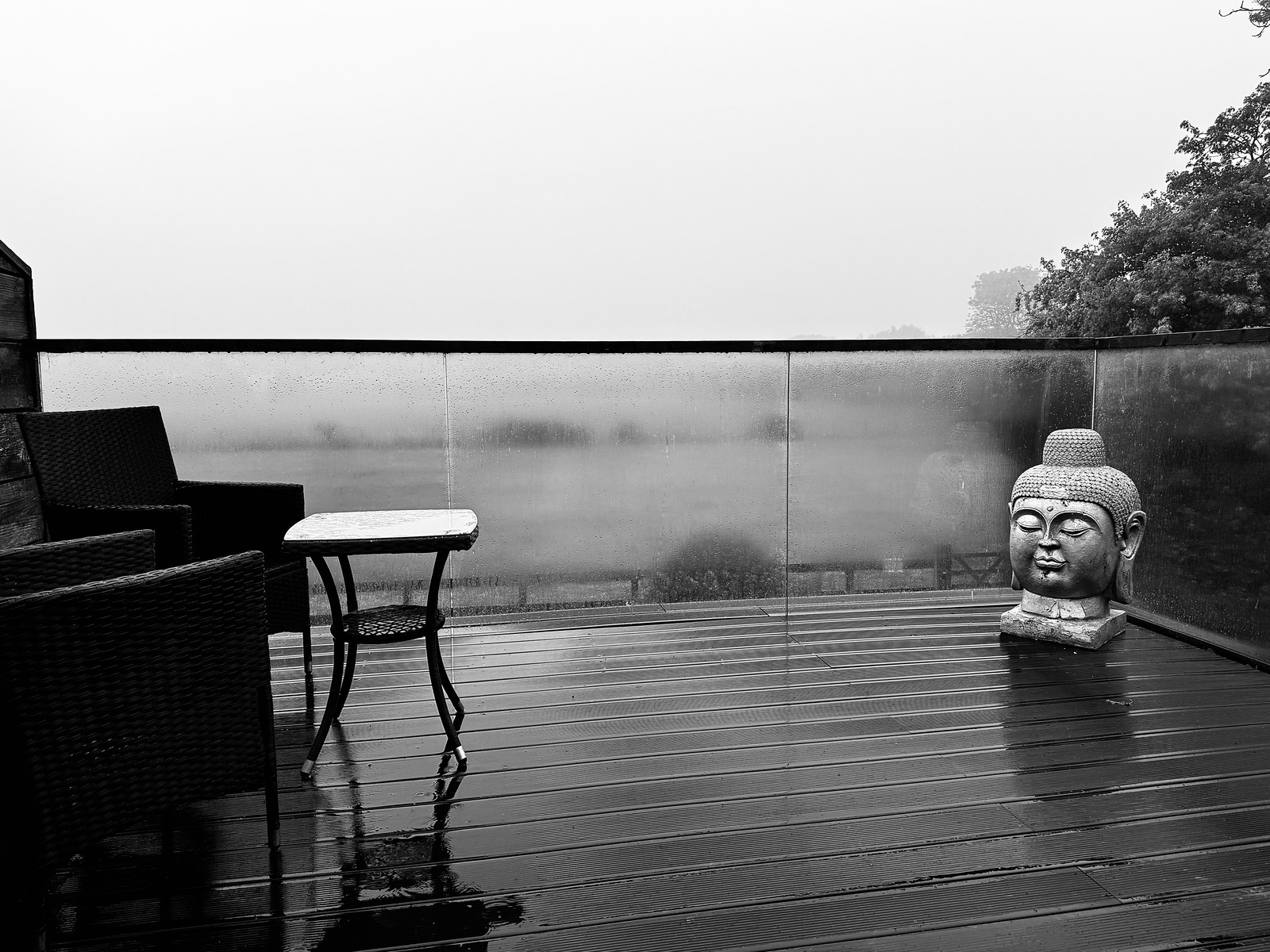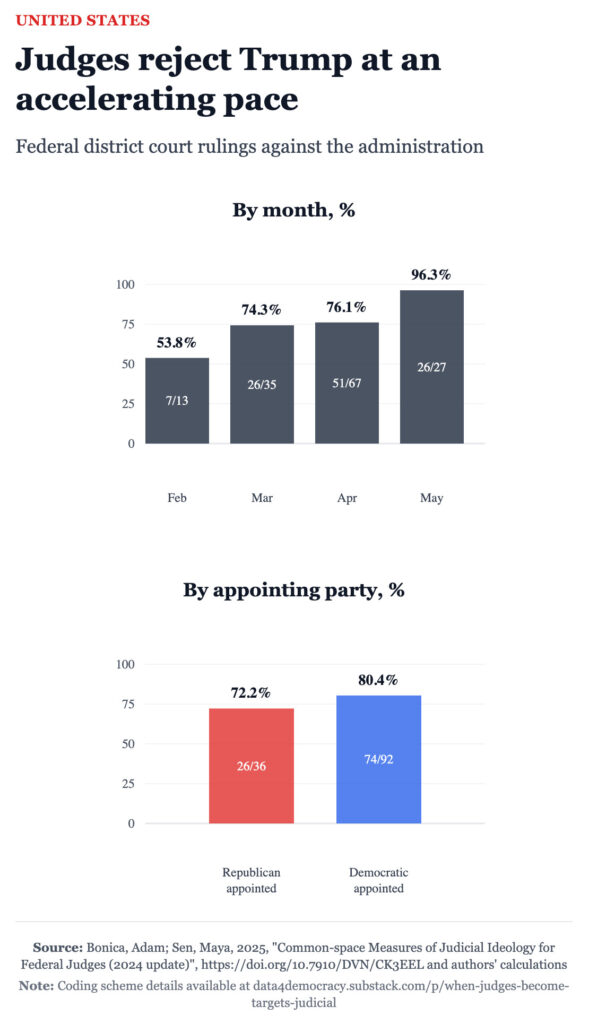Saturday morning, wet

The view from our hotel room in Kent.
Quote of the Day
“Ideology is like breath: You never smell your own.”
- Joan Robinson
Musical alternative to the morning’s radio news
The Byrds | The ballad of Easy Rider
Long Read of the Day
What fires burned at Auschwitz?
This is an astonishing essay by a great historian on how “the association of the Holocaust with industrial modernity has become an entrapping cliché”, starting with the Holocaust of Eichmann’s railway timetables, moving through “the Holocaust of the blueprint” (archetypical industrial artifacts for murdering people at scale, designed by German architects and engineers) and ending with the notion of the camps as ‘death factories’.
This is grim stuff and it’s a long read, but I found it illuminating. It caught my eye because I had written about the ‘blueprint’ aspect of it in the early 1990s after the Auschwitz archives (which had been transported to Moscow by the Russians after the liberation of the camp) had been opened to foreign scholars and I was in touch with one of them.
What fascinated me was what could be gleaned the archives of the architectural firm that designed the camp buildings, and of Töpf, the mechanical engineering firm who designed the furnaces. In these documents one saw the workings of highly professional architects and engineers grappling with the increasing needs of a very demanding client — The SS. And of course the question those documents raised was the obvious one: what was going through the minds of these professionals as they went about their professional duties? It led me eventually to propose that engineering and architectural schools should have ethics as a core part of their curricula.
RIP Alan Yentob

The most creative and interesting TV executive and film-maker I’ve ever known has died at the age of 78. I was the Observer’s TV Critic between 1987 and 1995 and so he and I often came into contact. What I liked about him was the way he would sometimes phone me late on Thursday evening if a programme of his was about to be screened. He knew that I would be writing my column the next morning and wanted to, er, draw it to my attention, but the resulting conversations were invariably funny, barbed, gossipy and enjoyable. What impressed me most was that he was doing his own PR, not delegating it to a minion.
There will be obtuaries everywhere this week, I guess, but here’s the BBC’s one. And when there’s a memorial service I will be at it.
May he rest in peace.
So many books, so little time
Chicago Sun-Times prints summer reading list full of fake books
Dontja just love this — from Ars Technica.
On Sunday, the Chicago Sun-Times published an advertorial summer reading list containing at least 10 fake books attributed to real authors, according to multiple reports on social media. The newspaper’s uncredited “Summer reading list for 2025” supplement recommended titles including “Tidewater Dreams” by Isabel Allende and “The Last Algorithm” by Andy Weir—books that don’t exist and were created out of thin air by an AI system.
The creator of the list, Marco Buscaglia, confirmed to 404 Media that he used AI to generate the content. “I do use AI for background at times but always check out the material first. This time, I did not and I can’t believe I missed it because it’s so obvious. No excuses,” Buscaglia said. “On me 100 percent and I’m completely embarrassed.”
A check by Ars Technica shows that only five of the fifteen recommended books in the list actually exist, with the remainder being fabricated titles falsely attributed to well-known authors…
Books, etc.
At the moment, Trump is attempting to rule by decree (aka Executive Orders), many (if not most) of them which to have little legal validity. And, funnily enough, American judges at the federal level have been pointing this out. I had been hearing about this but hadn’t any idea of how extensive such refusals have been, which is why this chart is so interesting.

When I mentioned to my friend David Runciman after Trump’s inauguration that it looked to me that Trump was under the delusion that he was a monarch rather than the president of a republic, he recommended that I have a look at an interesting book by Eric Nelson, a lad whom Quentin Skinner regarded as one of the smartest students he’d ever taught. Which is how I came to his book, The Royalist Revolution, a revisionist interpretation of the American revolution which argues that a great many of the ‘founding fathers’ of the revolution saw themselves as rebels against the British Parliament, not the Crown. Nelson interprets the patriot campaign of the 1770s as an insurrection in favour of royal power ― driven by the conviction that the Lords and Commons had usurped the just prerogatives of the monarch.
On June 1, 1787, James Wilson of Pennsylvania rose in the Constitutional Convention to offer the motion that would create the American presidency. The new federal executive, he proposed, should “consist of a single person”, and this chief magistrate should be vested with sweeping prerogative powers…The people of America did not oppose the British King but the parliament — the opposition was not against an Unity but a corrupt multitude… The colonists, on this view, had rebelled against a “corrupt multitude,” not a monarch”.
Implying, I guess, that the president should be free to govern as an unimpeded monarch, rather than as primus inter pares with the Congress and the Courts as the the Founders supposedly intended. Which Trump is obligingly doing. Arise, King Donald.
Linkblog
Something I noticed, while drinking from the Internet firehose.
- A transcript (and audio recording) of Trump’s Commencement Address to West Point graduates the other day. Not something I’d normally recommend, but some people were using it as evidence of dementia. I don’t think it is — it’s just him rambling on as usual. He always reminds me of maudlin drunks one used to encounter in rural pubs.
Feedback
Friday’s piece about the VW Beetle ad and honesty in advertising generallysparked some interesting email. The one that struck me most was this lovely advertisement for the Citroen 2cv.

The 2cv was a genuinely iconic vehicle. I always thought that if we lived in Provence, it would be an essential purchase. (though perhaps not as our only vehicle.)
This Blog is also available as an email three days a week. If you think that might suit you better, why not subscribe? One email on Mondays, Wednesdays and Fridays delivered to your inbox at 5am UK time. It’s free, and you can always unsubscribe if you conclude your inbox is full enough already!
